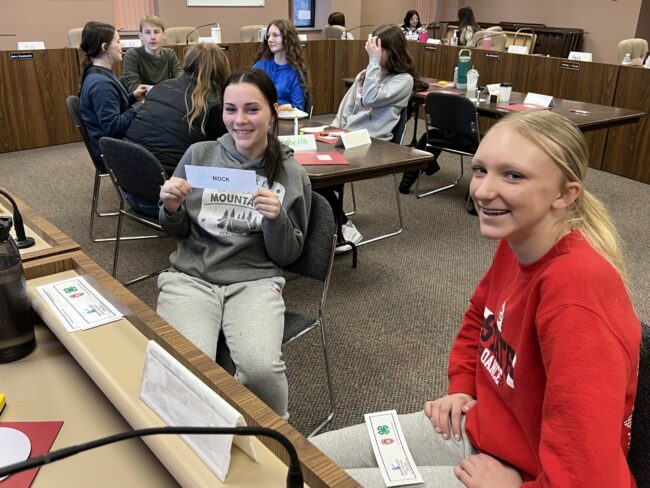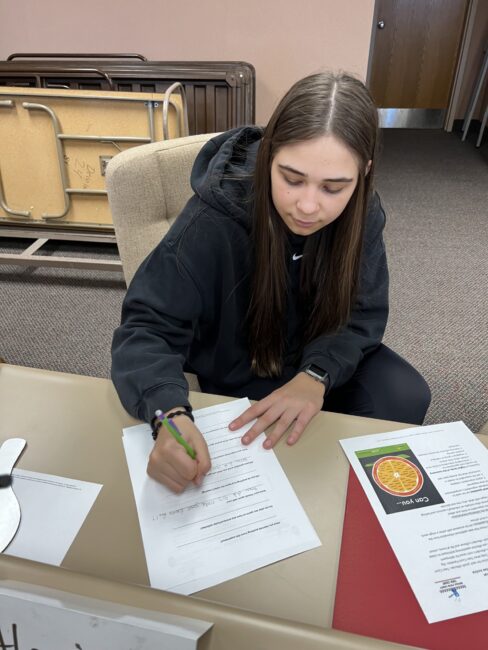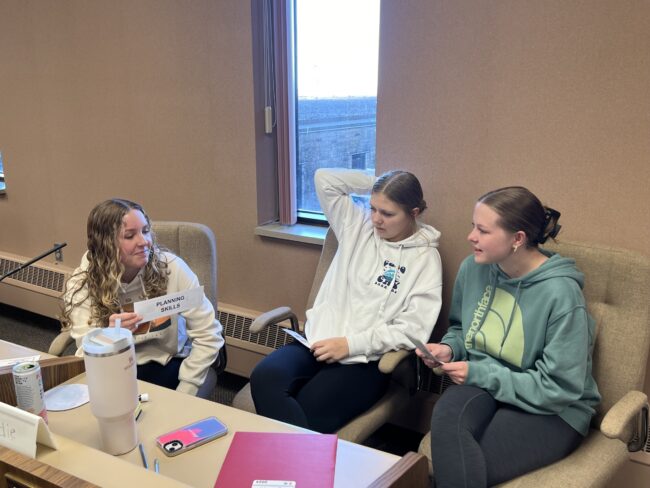
Buffalo / Pepin County Teen Court welcomed 23 new panel members at their training on April 12th at the Buffalo County Courthouse in Alma. These new panelists join another 35 high school students already serving as peer judges. Teen Court hears over 25 cases a year across the two counties with referrals from the juvenile court, law enforcement, human services, and local schools.
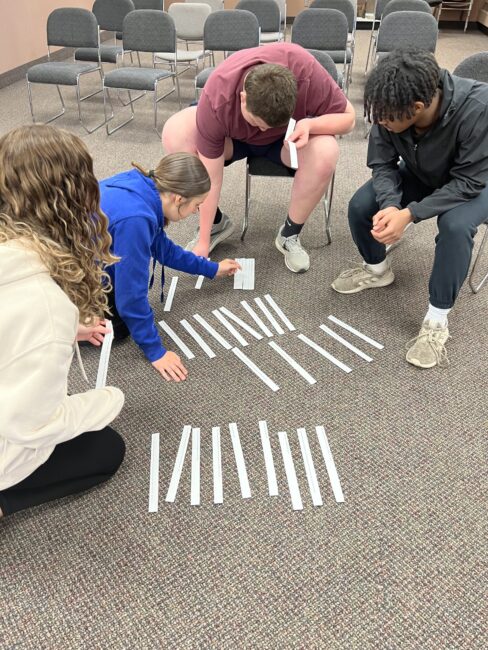
Integral parts of the training included developing an understanding of the pillars of restorative justice, practicing effective and equitable questioning strategies, reviewing the hearing process and steps in deliberation, discussing the research behind criminogenic needs, and developing authentic requirements to change behavior and repair relationships. The Honorable Judge Clark spoke with panel members about his strategies for using a restorative approach in his courtrooms. Students had the opportunity to observe him in action during a sentencing hearing.
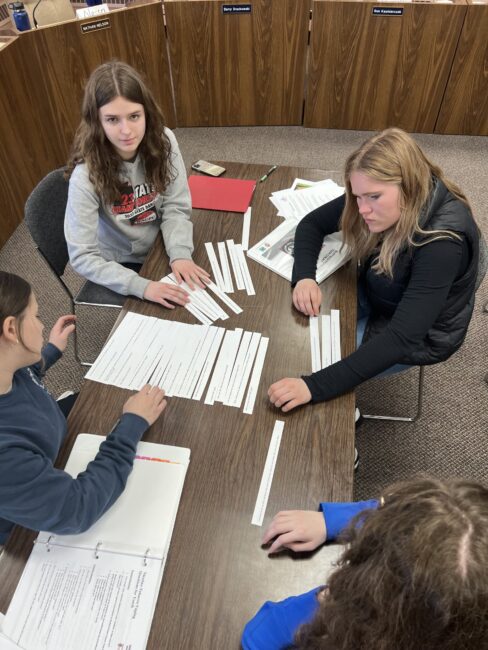
Throughout the training, experienced panelists coached new panel members in a mock teen court hearing. They also shared their perspectives, challenges and rewards serving Buffalo / Pepin County Teen Court. Panel members who assisted in facilitating the training were Ashley Bartelt (Alma), Zoey Danzinger (Alma), Kailyn Pophal (Durand) and Maya Weir (Durand).

The new teen court panelists that participated in training included: Aidan Lisowski (C-FC), Amber Lund, (Mondovi), Eli Sandberg (Mondovi), Ayden Flaherty (Mondovi), Nicole Walker (Alma), Nevayah Merchlewitz (Alma), Alexis Koch (Alma), Macy Stewart (Alma), Ness Noll (Alma), Bella Brouillard (Alma), Elizabeth Wayne (Durand), Alivia Elliott (Alma), Breckin Hullopeter (Pepin), Hannah Wahlund (Alma), Isabele Lamm (Durand), Addison Lamm (Durand), Madelyn Fregine (Durand) and Mavrik Ehrat (C-FC).
The training was coordinated by Annie Lisowski the University of Wisconsin-Madison Division of Extension Teen Court Coordinator. The training is centered on educating high school students on utilizing restorative justice with their peers. Restorative justice is an approach that encourages a youth with a violation to change behavior; a method that has been demonstrated as most effective, especially for young people, over time. Teen Court panelists also help their peers to repair their relationship with the victim, restore their image in the community and build skills that will increase their future chance at success.


